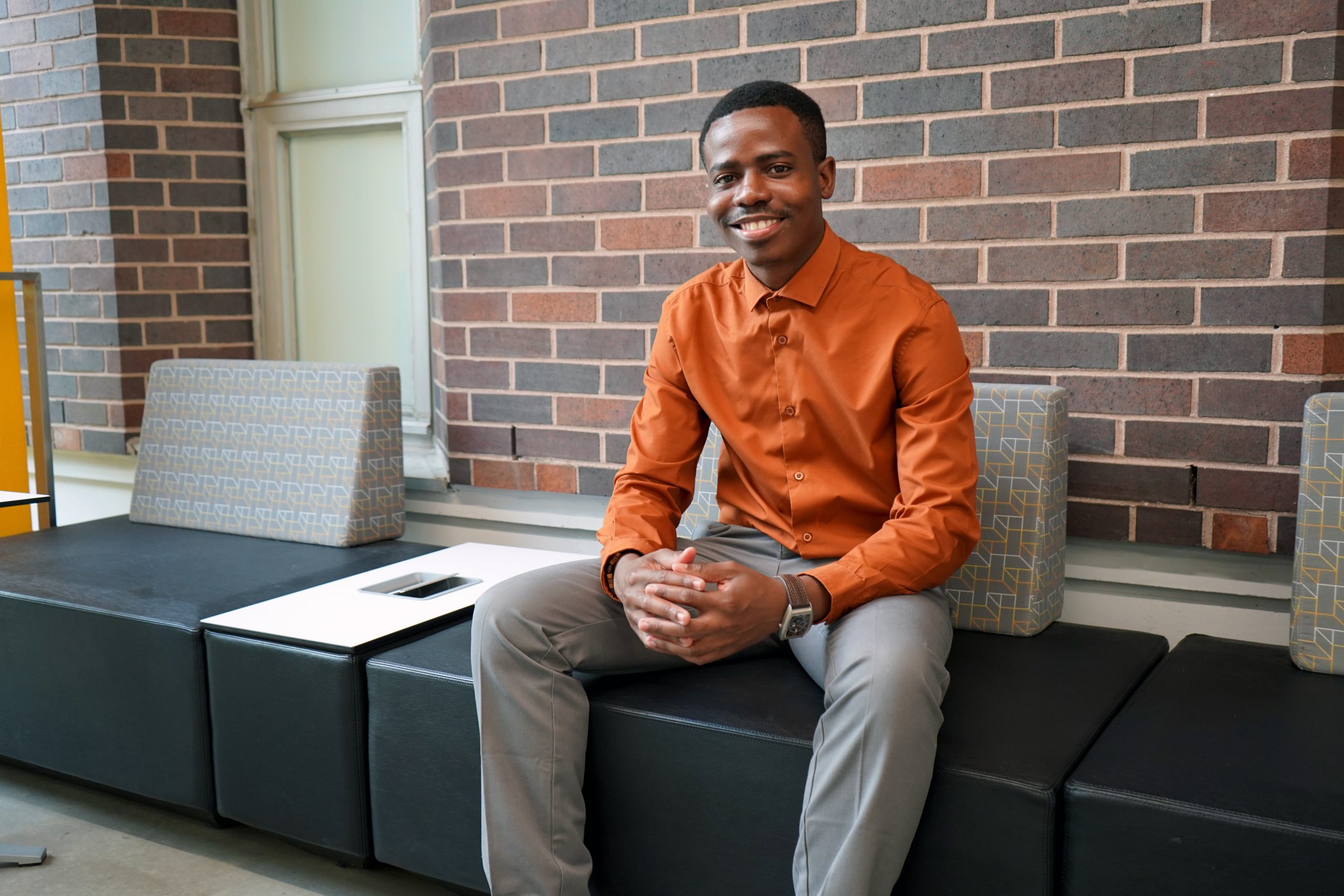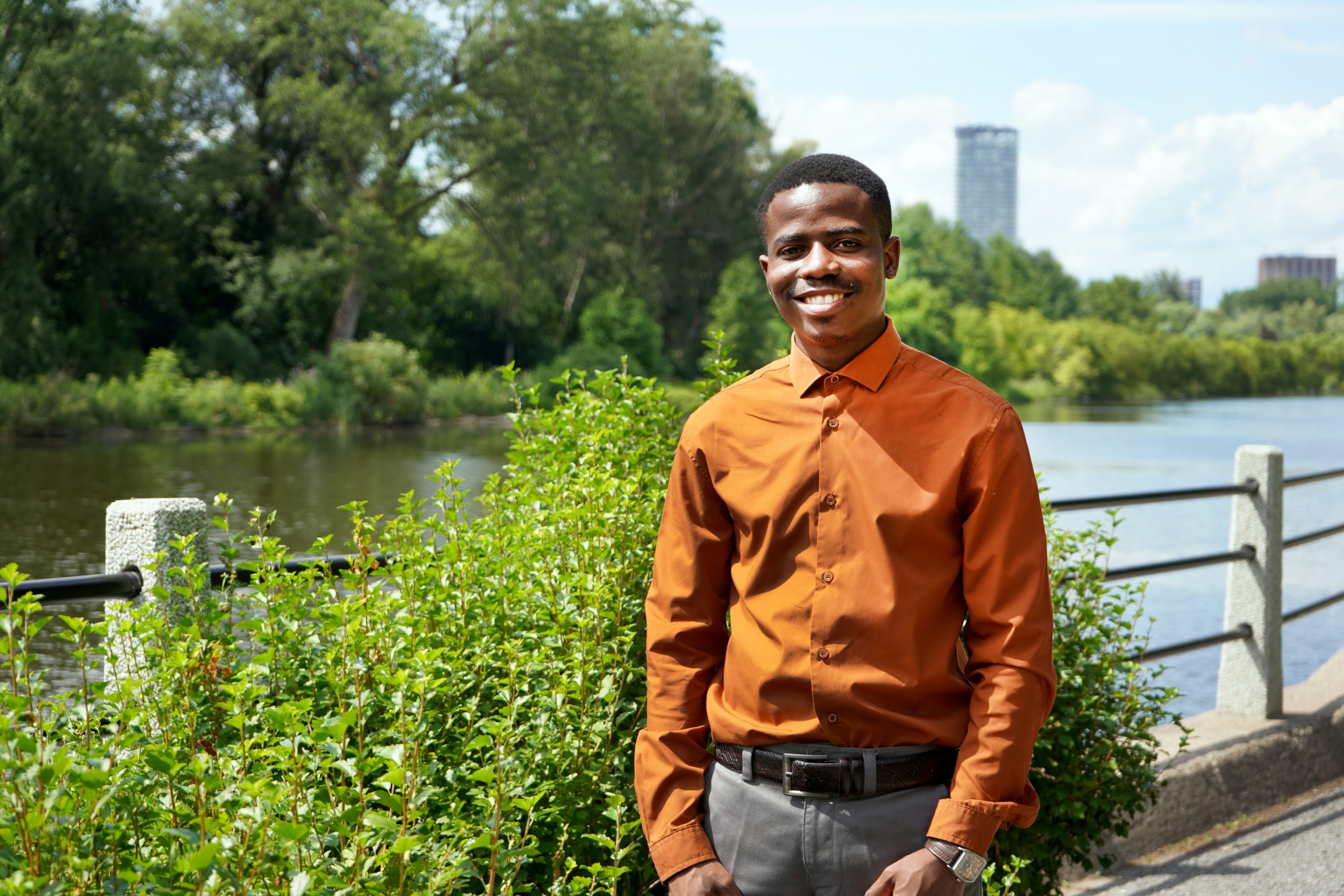Engineering a New Future: From Zimbabwe to Carleton’s Engineering Practice Program
Last fall, Carleton University officially launched its one-of-a-kind Master of Engineering – Engineering Practice (EP) Program, tailored towards internationally trained engineers who received their undergraduate degrees outside the Canadian Accreditation System. Open to students from all engineering backgrounds, the EP Program offers a distinctive blend of advanced technical training and career-oriented soft skills development, equipping students with the expertise and proficiency needed to successfully transition into Canada’s engineering job market upon graduation.
As the program approaches its first anniversary, Perseverance Hakutyiwi Japhet Jana, a student from the inaugural Fall 2023 cohort, reflects upon his experiences with the EP Program, his transition to life in Canada, and why he decided to pursue his Master of Engineering at Carleton.
How did you first become interested in engineering as a possible career?
I first became interested in engineering in the summer of 2016. It was just after 1:00 am and I had crossed the Beitbridge border post from Zimbabwe to South Africa by bus for the first time in my life. Suddenly, I felt a massive change in the journey: the ride transitioned from bumpy and uncomfortable to smooth and soft, almost like being on an airplane. I quickly realized it must have been the road. We had moved from a road full of potholes to one that was smooth, compact, and well-maintained.
As I peered through the window, I marveled at the road infrastructure and the lighting illuminating our path. The sophistication in both the geometric and aesthetic design of the road network was breathtaking, something I had only seen in American movies. This experience inspired me and strengthened my determination to become a transportation engineer.
What was your engineering background prior to joining Carleton and why did you choose to pursue that particular field?
Prior to joining Carleton, I completed a Bachelor’s degree in Civil and Water Engineering from the National University of Science and Technology (NUST) in Zimbabwe in 2021. During my studies, I completed a 12-month internship at the Bulawayo City Council, focusing primarily on road rehabilitation projects and potable water and wastewater infrastructure. This role taught me how closely civil engineering is connected to the lives of ordinary people and brought me a deep sense of purpose and fulfillment in working to benefit the larger community of Bulawayo.
After graduation, I worked for Kudon Engineering Services (KES) in South Africa as a Junior Project Manager. As part of this role, I served as an Assistant Project Manager at Arnot Power Station, where I oversaw coal hauling, ash dam, and processing operations, while ensuring effective coordination and collaboration in managing a team of approximately 75 individuals.
During my time there, I actively participated in stakeholder meetings involving unions, employees and management. These experiences helped me appreciate the importance of being a good communicator and organizer – skills that are crucial in the field of civil engineering.

Why did you decide to continue your studies with a Master of Engineering? What led you to consider studying internationally?
I chose to pursue a Master of Engineering because l wanted to expand my knowledge on the subject of Transportation Engineering. I decided to study internationally to get world class exposure and interact with a wider pull of professionals, academics and like minded people. I saw it as the best option to gain access to better opportunities.
How did you first learn of the EP Program? Why did you choose Carleton for your graduate studies?
I first learned about the EP Program during the application process to Carleton University. Initially, I intended to pursue a thesis-based Master’s program, but when I reviewed the courses offered by the EP Program, I was fascinated by its unique blend of technical and non-technical courses. The non-technical courses, in particular, emphasize the ability to communicate and engage with people on various levels, which is essential in the professional world.
I also chose Carleton because of its strategic location in the capital city of Canada. I was captivated by its rich history and beautiful architecture. I saw Carleton as a place where I could challenge myself and collaborate with like-minded individuals who are passionate about developing real solutions to complex problems in the transport and energy sectors. Additionally, I was particularly impressed by some of the articles and research papers published by Professor Kamal Hossain, which focus on transport and climate issues.
Can you describe your overall experience within the program so far? What are some of your favourite aspects of EP?
The EP program has been a unique and enriching experience so far. It is well-designed, integrating both technical and non-technical courses. One of my favourite aspects of the program is its holistic approach to preparing students for the job market. It strengthens our technical capabilities while also equipping us to work effectively both as part of a team and as individuals. This balanced focus ensures that we are not only technically proficient, but also ready to collaborate and communicate effectively in a professional setting.
How have you benefited from EP’s blended emphasis on employment-oriented skills mixed with advanced engineering topics?
EP’s focus on effective communication and the articulation of ideas has been invaluable. Through presentations, I’ve learned how to convey technical engineering information to a non-technical audience, which has been a significant lesson for me. The program is designed to empower students with comprehensive transferable skills, greatly enhancing job accessibility and preparedness for the professional world.
How have you been adjusting to life in Ottawa? Did you experience any major culture shocks after first arriving to Canada?
Overall, I’ve adjusted quiet well to life in Ottawa but l admit this wasn’t always the case. I vividly remember the controlled excitement of not knowing exactly what to expect. The uncertainty of what the learning environment was going to be like, the challenges of adapting to the cold winters of Canada and the countless variables that come with a fresh start, but as the time unfolded, so did the opportunities.
Canadians are generally kind and friendly, but I find they tend to keep to themselves. Coming from Zimbabwe, where people are very sociable and easily connect with strangers, this was a noticeable difference. Additionally, there’s a culture of buying things on credit and building a good credit score to demonstrate the ability to pay rent and secure loans. In Zimbabwe, transactions are typically conducted in cash, so this was a significant adjustment for me!

How do you connect and collaborate with other EP students? Is there a support network in place?
I connect with other EP students through various channels such as focus groups, social events, and on social media platforms like WhatsApp and Instagram. These platforms allow us to engage on a variety of issues that affect us and provide a support network for collaboration and mutual assistance.
How have you engaged with the broader Carleton community beyond EP? Are you pursuing any other activities on campus?
I had the opportunity to live on campus at Prescott House during my first year in EP. It was a great experience that allowed me to engage with the broader Carleton community beyond the EP program. I interacted with students from various countries, which was both magical and exciting.
I’ve also participated in networking events such as the SIGNALS Network and the SPPA Society. These events bring together students and alumni from the Sustainable Energy Department and the Public Policy and Administration programs to discuss issues related to energy policy development.
What were some of the biggest challenges you experienced in transitioning to the EP Program and living in Canada? How did you find support to help overcome these challenges?
My biggest challenge in transitioning to the EP program was adjusting to working in groups to achieve certain goals. This required me to learn how to effectively convey my ideas to others and to listen actively. Being an effective communicator and a good listener was crucial for having meaningful deliberations with my peers until we reached a consensus.
In also faced several practical challenges as a newcomer to Canada, such as navigating different places, understanding the transit system, finding part-time jobs, obtaining a social insurance number (SIN), and filing taxes. Fortunately, Carleton University provided numerous support networks to help with these issues, including the International Student Services Office and Career Services.
Do you hope to pursue a career in engineering in Canada following graduation? What would be your dream job/career?
I hope to pursue a career in engineering here in Canada after graduation. Initially, I would like to focus on Highway or Transportation Engineering, but my ultimate dream job is to work for the Canada Infrastructure Bank. I am passionate about being involved in financing major infrastructure projects that significantly impact society and the environment.
What advice would you give to anyone who may be considering the EP Program at Carleton?
Communication is crucial for navigating academic challenges, social activities, and maintaining mental well-being. Don’t hesitate to reach out to peers, professors, or support services. Seeking assistance and sharing experiences can be incredibly empowering.
While independent work is encouraged, the education system at Carleton also thrives on collaboration. Group work and teamwork are integral to the curriculum, and they are essential tools for both personal and professional development. Embrace these opportunities to enhance your communication skills and foster the exchange of ideas.
Lastly, focus on transferable skills. The EP program emphasizes the importance of these, particularly in terms of communication within the engineering field. These skills are not only beneficial in academia but also prepare you for the dynamic challenges of the real world.